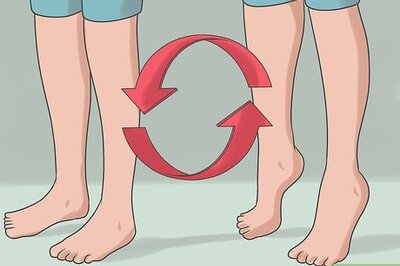
views
We often experience a tingling sensation on our hands and feet. Sometimes this feeling lasts for a shorter duration. For instance, if you keep your arm underneath your head for a long time, the pressure on the nerves may result in a tingling sensation. Alternatively, it could result from the prolonged crossing of legs that puts pressure on the nerves. In either situation, the pressure generated by this ‘pins and needles’ feeling stops the sensation. It makes our hands or legs go numb.
This otherwise harmless symptom can be worrisome too. Symptoms, including discomfort, itching, numbness and muscular atrophy may also accompany it. In these circumstances, tingling might be a symptom of nerve damage, which can be brought on by a variety of conditions, including systemic illnesses like diabetes, bacterial or viral infections, repeated stress injuries, traumatic injuries, or infections from bacteria or viruses.
Causes
About 30% of cases of peripheral neuropathy are caused by diabetes, making it one of the most frequent causes. In diabetic neuropathy, tingling and other symptoms frequently start in both feet and progress up the legs before moving on to both hands and the arms. Approximately two-thirds of diabetics have mild to severe nerve damage.
Nerve Entrapment symptoms may include radial nerve palsy, peroneal nerve palsy, ulnar nerve palsy, and carpal tunnel syndrome.
Systemic illness includes conditions affecting the kidneys, the liver, the blood vessels, and amyloidosis, as well as hormonal imbalances (including hypothyroidism), malignancies, and benign tumours that press on the nerves.
Deficiency in vitamins like E, B1, B6, B12, and niacin can also trigger this. For instance, a B12 deficiency can produce pernicious anaemia, a significant contributor to peripheral neuropathy. Taking too much B6 can also make your hands and feet tingle. Excessive toxins and alcoholism can have a short-term tingling effect on the body.
When you seek medical attention for tingling in your hands or feet, your doctor will perform a physical examination and ask you about your symptoms, work environment, social habits (including alcohol use), toxic exposure, risk of HIV or other infectious diseases, and any neurological conditions in your family.
Read all the Latest Lifestyle News here




















Comments
0 comment